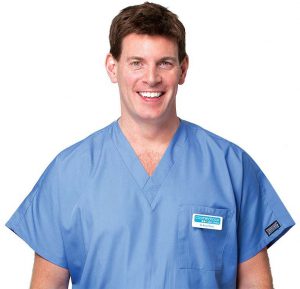Independent: Skin Cancer Expert Dr Ross Perry
The Independent looked at 6 common forms of cancer for women, with advice from leading experts in the field. Dr Ross Perry, Founder and Medical Director of the London Mole Removal Centre led on skin cancer.
The article was published on World Cancer Day to raise awareness of the disease which is a leading cause of death in the UK. 1 in 2 Brits will be diagnosed at some point in their lives.
In the UK, the most common cancers affecting women are (in order of priority) breast, lung, bowel, uterus, melanoma skin, and ovarian cancer.
Early detection is key to treatment success and survival, so it is important to be aware of the symptoms.
Melanoma Skin Cancer
Melanoma is the fifth most common cancer for women with cases increasing by 35% in the last decade, yet Cancer Research say that 86% of cases are preventable.
The key factor in melanoma skin cancer is sun damage.
Dr Ross Perry warns of the risk of sun exposure:
“Sun exposure is a known factor for increasing the risk of skin cancer and even the British sun can, over time, accumulate and cause sun damage.
“Getting a tan – especially sunburn – increases the risk of sun damage and in turn skin cancer. It’s a personal choice but having a tan that only lasts a week versus the risk of cancer: is it really worth it?
“No tan is a safe tan and these days fake tan is so realistic and safe that it’s better to look bronzed from a bottle than via the sun.”
Dr Perry told the Independent that regular skin mole checking is vital to look for any unusual signs that could indicate skin cancer:
“Things to look out for are a mole or growth which is new or an existing one that has changed in size, shape, feel or colour, along with any itching, tenderness, crusting or bleeding.
“Seventy per cent of all melanomas are new moles, so it’s important to keep checking even if you don’t have any as one may develop.”
What if I’m worried?
If you have any concerns, Dr Perry advises seeking medical attention for a diagnosis and referral as appropriate.
Read this article in full
To read more, please visit https://www.independent.co.uk/life-style/women/world-cancer-day-women-symptoms-advice-help-medical-a9315996.html
This article was published 4th February to coincide with World Cancer Day.
 Dr Ross Perry
Dr Ross Perry
Dr Perry is renowned as an expert in removal of skin lesions. He has removed thousands of moles in his role as Medical Director and founder of Cosmedics Skin Clinics including the London mole Removal Centre.
His career includes working in the NHS both in skin cancer reconstruction and as a GP, so he is experienced and expert in diagnosing skin lesions and providing the best possible advice/treatment.
Can I get rid of unwanted moles?
Any mole deemed risky is normally removed very quickly on the NHS and will then be tested to understand whether it was cancerous so that the need for further treatment may be assessed.
However, many moles are deemed to be ‘cosmetic’ in nature and when this is the case, free NHS treatment is now severely reduced.
Clients can choose to have moles removed privately at clinics such as the London Mole Removal centre, who specialise in mole removal and also arrange full histology (testing) as a precautionary measure.
Private Mole Checks & Removal
The London Mole Removal Centre is a private company, offering diagnosis and treatment for skin lesions including moles, cysts, skin tags, warts, verruca, lipoma, xanthelasma, milia. All consultations and treatments are carried out in person by doctors who are specially trained in the latest laser and skin surgery techniques and are highly experienced in the field. Patients benefit from:
- No waiting lists
- Fully trained doctors, registered with GMC
- Blemishes can usually be removed in the same appointment as the consultation, saving the need for a repeat visit and allowing patients to get very quick treatment
- Choice of 4 clinics in London plus one in Bristol
- Testing with report provided where necessary
For more information or to book a consultation, please complete the form on this web page or call 020 7731 3791.



